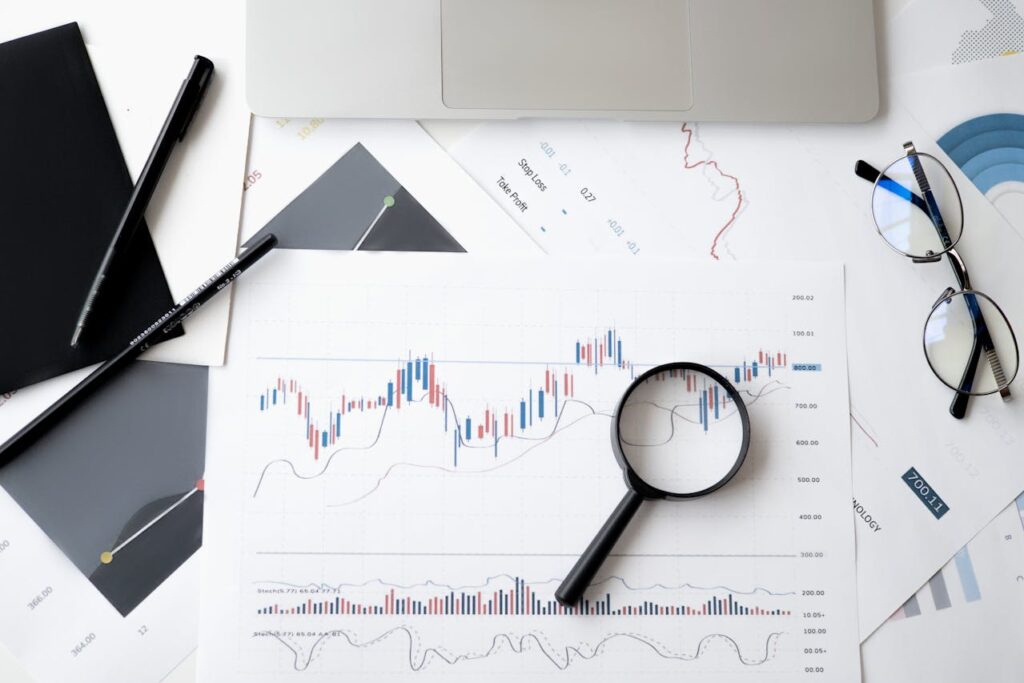In financial markets, particularly in the volatile arenas of forex and cryptocurrency trading, the human psyche plays a pivotal role. Among the various emotions that influence trading decisions, greed stands out as one of the most potent and perilous. While it’s natural to seek profits, unchecked greed can swiftly transform from a driving force to a destructive one. In this article, we delve into the insidious ways greed can dismantle trading accounts in forex and cryptocurrency markets.

Understanding Greed
Greed, in the context of trading, is an insatiable desire for excessive wealth or profits. It manifests when traders prioritize maximizing gains over prudent risk management. While ambition and aspiration are integral to success, unchecked greed often leads to irrational decision-making and impulsive actions.
From the technical point of view, greed exerts a profound influence on trading psychology, distorting rational decision-making and fostering a perilous cycle of risk-taking. When greed takes hold, traders become consumed by the relentless pursuit of ever-increasing profits, often at the expense of sound judgment and prudent risk management. This insatiable desire for more can lead to a myriad of destructive behaviors, including overleveraging, chasing unsustainable gains, and ignoring warning signs of impending market downturns.
How Greed Affects Your Trading Psychology
Moreover, greed amplifies emotional responses to market fluctuations, causing traders to become more susceptible to fear and greed-driven decision-making. Ultimately, the grip of greed tightens, clouding the trader’s vision and undermining their ability to execute trades with discipline and objectivity. Thus, understanding and mitigating the influence of greed is paramount for fostering a healthy trading mindset and achieving long-term success in the financial markets.
Now, let’s explore different ways greed can destroy your trading mindset and affect your decision-making.

The False Promises of Quick Riches
One of the primary ways greed infiltrates trading accounts is through the allure of quick riches. In both forex and cryptocurrency markets, stories abound of individuals who seemingly struck gold overnight, fueling fantasies of similar success. However, behind these tales lie countless instances of reckless speculation and unsustainable risk-taking driven by greed. Traders enticed by the promise of rapid wealth often overlook the importance of thorough market analysis and risk assessment, exposing themselves to significant losses.
Overleveraging
Greed frequently manifests in the form of overleveraging – a practice wherein traders borrow funds to amplify their trading positions. While leverage can magnify profits in favorable market conditions, it also exponentially increases the magnitude of losses. Traders succumbing to greed often disregard the inherent risks of overleveraging, mistakenly believing it to be a shortcut to prosperity. However, a single adverse market movement can swiftly wipe out an overleveraged account, leaving traders devastated and financially crippled.
Ignoring Risk Management
Effective risk management is the cornerstone of successful trading, serving as a bulwark against catastrophic losses. However, greed blinds traders to the importance of prudent risk management practices. Instead of implementing stop-loss orders, diversifying their portfolios, and adhering to strict position-sizing strategies, greedy traders often throw caution to the wind in pursuit of greater profits. Consequently, they expose themselves to undue risks, leaving their trading accounts vulnerable to ruinous downturns in the market.

Chasing Losses
Another insidious manifestation of greed is the tendency to chase losses. When faced with a string of unsuccessful trades, greedy traders often double down on their positions in a desperate attempt to recoup their losses swiftly. This behavior, driven by the fear of missing out on potential profits, only exacerbates the situation, leading to further losses and emotional distress. Chasing losses undermines rational decision-making and erodes trading discipline, ultimately culminating in financial ruin.
The Pitfalls of Emotional Trading
Greed operates hand in hand with emotions, clouding judgment and prompting impulsive trading decisions. Emotional trading, fueled by greed, often leads to erratic behavior characterized by excessive buying or selling based on fleeting market trends. Traders driven by greed fail to adhere to their predefined trading strategies, instead succumbing to FOMO (Fear of Missing Out) or FUD (Fear, Uncertainty, Doubt). Consequently, they expose themselves to unnecessary risks and jeopardize the integrity of their trading accounts.
The Illusion of Control
Greed fosters a false sense of control, leading traders to believe they can predict and manipulate market movements to their advantage. This illusion often results in hubris, as traders overestimate their abilities and underestimate market volatility. Greedy traders may eschew fundamental analysis and technical indicators in favor of speculative guesswork, erroneously believing they possess insider knowledge or infallible intuition. However, the market operates independently of individual desires or expectations, and attempting to bend it to one’s will is a fool’s errand.
The Path to Redemption

While the perils of greed are undeniable, all hope is not lost for traders ensnared by its grasp. Title: Mastering Trading Psychology: A Comprehensive Guide to Overcoming Greed in Your Trading Journey
Greed, characterized by an insatiable desire for more profits, often leads traders to take undue risks, abandon rational decision-making, and ultimately suffer substantial losses. However, with a focused approach and disciplined mindset, it’s possible to conquer greed and cultivate a trading psychology that fosters long-term success. This comprehensive guide outlines actionable steps and strategies to help traders eliminate greed from their trading mindset and achieve mastery in the financial markets.
Here are a few steps you can focus on to avoid greed taking control of your trading psychology and damaging your account:
Understanding the Nature of Greed
Before embarking on the journey to conquer greed, it’s essential to understand its nature and how it manifests in the context of trading. Greed is a natural human emotion rooted in the desire for more, often triggered by the prospect of financial gain. In trading, it manifests as an irrational urge to maximize profits at any cost, leading traders to deviate from their established strategies and risk management principles. Recognizing greed as a pervasive force that can undermine trading success is the first step towards overcoming its influence.
Cultivating Self-Awareness
Developing self-awareness is paramount for identifying and mitigating the influence of greed in trading decisions. Traders must learn to monitor their thoughts, emotions, and behavioral patterns while actively engaged in the markets. Keeping a trading journal can be instrumental in this process, providing a platform for self-reflection and analysis. By regularly documenting trades, recording emotional responses, and identifying instances where greed may have influenced decisions, traders can gain valuable insights into their psychological tendencies and develop strategies to counteract them.
Setting Clear Trading Goals and Adhering to a Plan
Clarity of purpose and adherence to a well-defined trading plan are indispensable tools for combating greed. Establishing clear, realistic trading goals helps provide direction and focus, guiding traders toward disciplined decision-making. A comprehensive trading plan should outline entry and exit criteria, risk management strategies, and guidelines for trade execution. By adhering to a predetermined plan, traders can minimize the influence of impulsive behavior driven by greed and maintain a disciplined approach to trading.
Practicing Discipline and Patience
Discipline and patience are virtues that lie at the heart of successful trading. In the face of market volatility and emotional fluctuations, maintaining discipline is paramount. Traders must resist the temptation to deviate from their established strategies, even when confronted with the allure of quick profits. Patience, too, is essential, as successful trading often requires waiting for high-probability setups to materialize. By exercising discipline and patience, traders can mitigate the influence of greed and make decisions based on rational analysis rather than emotional impulses.

Embracing a Mindful Approach
Mindfulness, the practice of cultivating awareness and presence in the moment, can be a powerful antidote to greed in trading. By incorporating mindfulness techniques such as deep breathing exercises, meditation, or visualization into their daily routine, traders can cultivate mental clarity and emotional resilience. Mindfulness enables traders to remain grounded amidst market fluctuations, reducing the likelihood of succumbing to impulsive behavior driven by greed. By fostering a mindful approach to trading, traders can develop a heightened sense of self-awareness and emotional balance, enhancing their ability to make informed decisions in the face of uncertainty.
Managing Risk Effectively
Effective risk management is paramount for mitigating the impact of greed on trading performance. Traders must set strict limits on the amount of capital they are willing to risk on each trade and ensure that position sizes are appropriate based on account size and risk tolerance. By prioritizing capital preservation over profit maximization, traders can safeguard against the adverse effects of greed-induced behavior. Implementing stop-loss orders, diversifying portfolios, and adhering to proper position-sizing techniques are essential components of a robust risk management strategy.
Seeking Support and Accountability
Trading can be a solitary endeavor, but seeking support from peers, mentors, or trading communities can provide invaluable guidance and accountability. Surrounding oneself with like-minded individuals who share similar goals and values can offer perspective and encouragement during challenging times. Additionally, maintaining open lines of communication with trusted mentors or accountability partners can help reinforce disciplined behavior and provide a source of support when facing emotional challenges. By fostering a supportive network, traders can navigate the psychological pitfalls of trading more effectively and stay on track toward their goals.

Reflecting and Adapting
Reflection is an essential component of the learning process in trading. Traders must regularly review their performance, analyze past trades, and identify areas for improvement. By reflecting on past successes and failures, traders can gain valuable insights into their trading psychology and behavioral tendencies. Honest self-assessment is crucial, as it enables traders to identify patterns of behavior influenced by greed and develop strategies to counteract them. Adaptability is also key, as markets are dynamic and constantly evolving. Traders must be willing to adapt their strategies and approaches based on changing market conditions and lessons learned from experience.
Conclusion
In the high-stakes arenas of forex and cryptocurrency trading, greed lurks as a formidable adversary, capable of decimating trading accounts ruthlessly. Its insidious influence permeates every facet of trading, from irrational decision-making to emotional turmoil. However, by fostering self-awareness, practicing prudent risk management, and prioritizing discipline over impulse, traders can safeguard themselves against the corrosive effects of greed. Ultimately, success in trading lies not in pursuing excessive wealth, but in cultivating patience, resilience, and sound judgment.
Conquering greed in trading requires a multifaceted approach that encompasses self-awareness, discipline, patience, and mindfulness. By understanding the nature of greed, setting clear goals, practicing discipline, and managing risk effectively, traders can mitigate its influence on their decision-making process. Seeking support from peers and mentors, reflecting on past performance, and remaining adaptable in the face of changing market conditions are also critical components of overcoming greed.
Remember, mastering trading psychology is an ongoing journey that requires dedication, introspection, and a commitment to continuous improvement. By following the strategies outlined in this guide, traders can cultivate a mindset that fosters long-term success and resilience in the financial markets.
